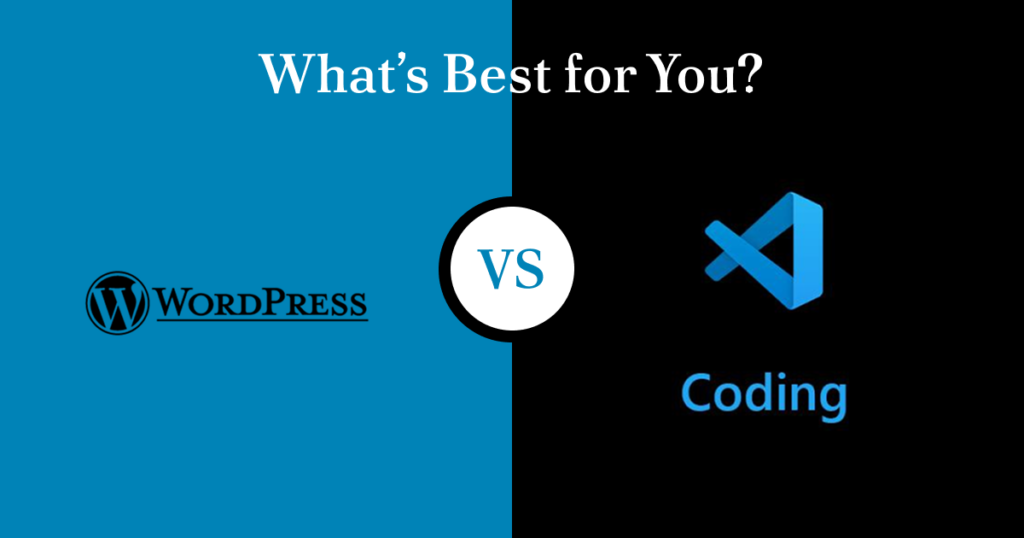WordPress vs Custom Development: What’s Best for You?

When building a new website, one of the first big decisions you’ll face is choosing between WordPress development and custom website development. Both options have their strengths—and the right choice depends on your budget, goals, and long-term vision.
What is WordPress Development?
WordPress development refers to the process of creating, customizing, and maintaining websites using WordPress, the world’s most popular Content Management System (CMS). It allows individuals and businesses to build anything from simple blogs to full-fledged e-commerce stores—without needing to write every line of code from scratch.
1. Why WordPress is Popular
User-Friendly: Even beginners can manage content, update pages, and upload media without technical expertise.
Highly Flexible: Supports blogs, corporate websites, portfolios, online stores, membership sites, and more.
Cost-Effective: Most features can be achieved without large budgets.
2. Types of WordPress Development
Theme Development & Customization – Designing and modifying layouts for a unique look and feel.
Plugin Development – Creating add-ons to extend website functionality.
Full Website Development – Building an entire website using WordPress as the core platform.
Headless WordPress – Using WordPress as a backend while delivering content through custom front-end frameworks like React or Vue.
3. Key Features of WordPress
Open Source: Completely free to use and modify.
Extensive Plugin Library: Over 59,000 plugins to add features like SEO optimization, forms, and security.
SEO-Friendly: Built-in and plugin-supported tools help improve search rankings.
Responsive Design: Many themes are mobile-friendly out of the box.
What is Custom Website Development?
Custom website development is the process of building a website from scratch—tailored specifically to your business needs, branding, and functionality requirements. Unlike pre-built templates or content management systems (CMS) like WordPress, custom development gives you complete control over design, performance, and scalability.
1. How It Works
Custom development typically involves:
Planning & Strategy – Defining business goals, audience, and required features.
UI/UX Design – Creating unique, user-friendly layouts.
Front-End Development – Coding the visual elements (HTML, CSS, JavaScript, frameworks like React or Vue).
Back-End Development – Building the server-side logic (PHP, Python, Node.js, Laravel, Django, etc.).
Testing & Launch – Ensuring speed, security, and compatibility across devices.
2. Advantages of Custom Development
Unique Design: 100% original look that reflects your brand identity.
High Performance: Optimized code ensures fast loading and smooth functionality.
Better Security: No reliance on third-party plugins that could introduce vulnerabilities.
Scalability: Easily adapts to future growth and new features.
Custom Features: Built exactly to your requirements—no limitations.
3. Who Should Choose Custom Website Development?
Custom development is ideal for:
Large enterprises with complex needs
Startups launching innovative platforms or apps
E-commerce businesses with custom ordering or payment systems
Organizations with strict branding and security requirements
Conclusion
WordPress development offers a balance of ease, flexibility, and scalability—making it the go-to choice for millions of website owners. Whether you need a personal blog or a complex online store, WordPress can be tailored to fit your needs.
Custom website development offers unmatched flexibility, performance, and security—making it the perfect choice for businesses looking to stand out in a crowded digital world. While it requires more investment and time, the results are tailored, future-proof, and brand-specific.
